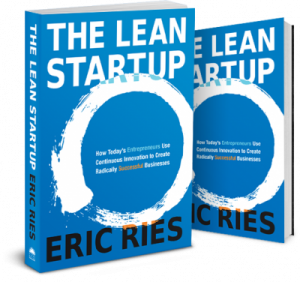
Vinicius Vacanti is co-founder and CEO of Yipit. Next posts on how to acquire users for free and how to raise a Series A. Don’t miss them by subscribing via email or via twitter.
After about 6 months of struggling to get something off the ground, I realized a sobering truth: I had no idea what I was doing.
My startup instincts were terrible.
So, I went on a mission to learn from others.
And while “saved our startup” may seem dramatic, it really isn’t. Each of these books has a significant impact on how we approached a key area of our startup.
I honestly don’t think Yipit would be where we are today had we not learned their lessons:
- Never Eat Alone – I used to hole myself up in my apartment thinking that an hour spent working was always better than an hour spent meeting someone else. This book convinced me I was wrong. I started getting coffees, breakfast and dinners with other founders and potential investors and I was consistently amazed by how much a single 30-minute conversation could cause us to completely re-evaluate our strategies.
- Influence: The Psychology of Persuasion – So much of startups is getting your users to take certain actions. Getting them to sign-up, share a link, try out a product, etc. Constantly improving the conversion rates of each of these actions is at the core of what most startups do. This book laid out 7 key principles that will help you increase those conversions. Once I read this, I started seeing how every successful company uses them. These principles don’t replace a good product, but they can make it so that more people give your product a chance.
- Getting Real – Like most other first-time founders, I could get lost in all the potential problems and corner cases our product would struggle with. This book taught me to ignore that instinct. A passage that really struck home with me was that 37Signals launched BaseCamp without billing because they figured they had 30 days to get billing done. While it seemed insane, it both allowed them to focus on problems they currently had and forced them to build a very simple billing system.
- The Lean Startup – I think of our startup’s journey as pre- and post- learning about the Lean Startup movement. It completely changed how we approached our startup and I owe much of our success to its teachings. Plus, not only did it help us when we were getting off the ground, it’s helping us today as we apply the strategy to new products at Yipit.
- Don’t Make Me Think – This is an old book, even when I read it four years ago, but it really taught me to put myself in the shoes of our users. It taught me that if the user can’t figure something out, it’s my fault not their fault. It taught me about simplicity and calls to action and re-using existing user interface design patterns.
- Django Book – I’m not sure this is still the best way to learn Django anymore. But, when I decided to teach myself to code, this online book showed me how easy it could be to build web prototypes. I couldn’t believe how powerful a framework Django was and, within months, we were building and launching our own prototypes. This was the single biggest step-function change for our startup.
- Startup Metrics for Pirates – Lastly, while not a book (though it should be), Dave McClure’s framework for thinking about startup metrics is brilliant. I found a video of him online giving his talk. Despite it’s terrible recording, I watched it twice, back to back– it was that good.
And, while you may think that reading a whole book about these concepts may not be a good use of your time, keep in mind that the challenge isn’t just finding out about these concepts but absorbing them.
Sometimes you just have to read 100+ pages to finally stop stubbornly following your misguided instincts, I had to.
Vinicius Vacanti is co-founder and CEO of Yipit. Next posts on how to acquire users for free and how to raise a Series A. Don’t miss them by subscribing via email or via twitter.





